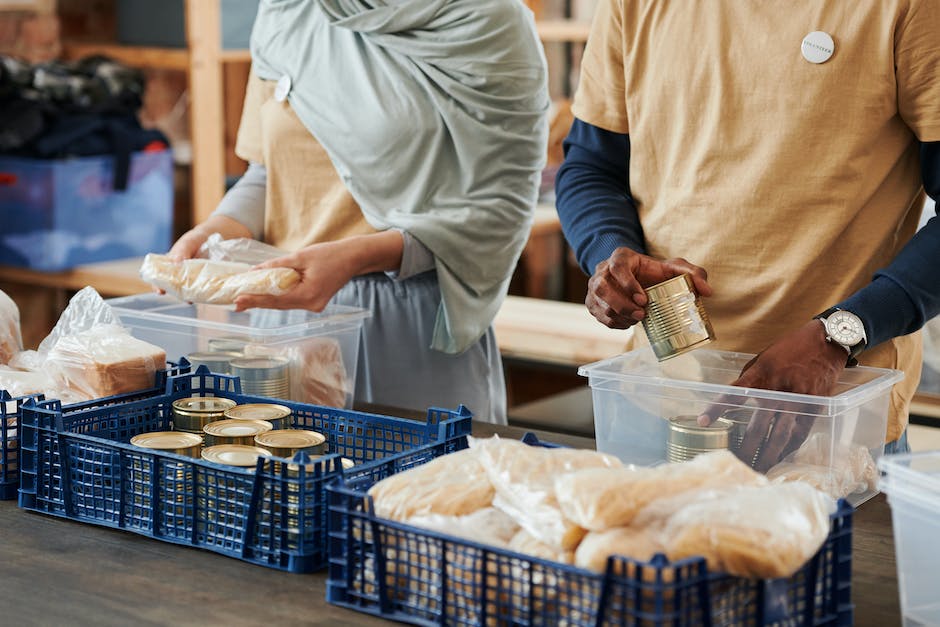DC Central Kitchen

Credit: Julia M Cameron https://www.pexels.com/photo/volunteers-preparing-donations-6995201/
Licence: Free to use
| Giver: | Community |
|---|---|
| Receiver: | Formal/Structured unregistered organizations |
| Gift: | Time |
| Approach: | ROSCA |
| Issues: | 2. Zero Hunger |
| Included in: | Community Foundations, Food and Generosity, ROSCAs |
DC Central Kitchen (DCCK) is a groundbreaking social enterprise that prepares and delivers free meals in Washington, D.C. Founded by activist Robert Egger in 1989, DCCK takes a holistic approach to the problems of food insecurity and homelessness. In addition to distributing meals to people living with hunger, the organization recruits and trains unemployed adults to work in its kitchen, enabling them to serve the community while they gain the skills they need to reenter the job market. By directly involving people from marginalized groups in the process of feeding themselves and others, DCCK presents a model of giving that is both empowering and sustainable.
Prior to launching DCCK, Egger was an aspiring nightclub owner who did volunteer work in his spare time. Dismayed by what he perceived to be the underlying ineffectiveness of the nonprofit sector, Egger conceived of a more coordinated and impactful way to provide food to the city’s shelters. First and foremost, Egger wanted society to move past the concept of a “soup kitchen,” believing it propagated negative stereotypes and painted an inaccurate picture of hunger in modern America.
In reimagining how a charity might operate, Egger borrowed administrative techniques from the business world, constantly seeking ways to increase efficiency while making the most of the materials at hand. Egger also understood the value of public relations, actively publicizing DCCK initiatives to maximize media coverage. Speaking with the Stanford Social Innovation Review in 2014, Egger described his multi-pronged approach as a form of “guerrilla management.”
Egger set out to combat the problem of food waste by collecting food scraps from restaurants, schools and other institutions throughout the nation’s capital. Operating out of the basement of the Federal City Shelter, he established a community kitchen where he trained volunteers in the art of food preparation. Many of these team members had experienced homelessness, drug addiction and other circumstances that made it difficult for them to achieve economic security.
Over the years, DCCK launched new initiatives such as Healthy School Food, a meal service for the public education system, and Healthy Corners, a program that helped establish grocery stores in underserved neighborhoods. Egger remained with the organization until 2012, when he moved to Los Angeles to launch LA Kitchen, a culinary training program for people transitioning out of the criminal justice system.
Meanwhile, DCCK continued to thrive. By 2022, the organization’s staff of 180 full-time employees was preparing 25,000 meals each day. That same year, it relocated from its basement headquarters to the Michael R. Klein Center for Jobs and Justice, a new state-of-the art facility that tripled its meal preparation capacity. DCCK’s ongoing success illustrates how an individual with vision and commitment, working in coordination with the community, can inspire radical new strategies to confront social issues.
Contributors: Maha Tazi, Stephen Meyer
| Source type | Full citation | Link (DOI or URL) |
|---|---|---|
| Publication |
Mathews, Esther; Bowman, Rachel; Whitbread, Gabe; Johnson, Robert. “DC Central Kitchen: Peer mentoring, structure and self-empowerment play a role in desistance.” Journal of Offender Rehabilitation, Vol. 59, 2020. |
https://bit.ly/3R1QThk |
| Publication |
Ameli,Patrizia; Kayes, D. Christopher. “Triple-loop learning in a cross=sector partnership: The DC Central Kitchen partnership.” The Learning Organisation, 2011. |
ISSN: 0969-6474 |
| Publication |
El Tarabishy, Ayman; Mendes, Tony. “DC Central Kitchen: The Kitchen of the Future.” Sage Publications: Sage Business Cases Originals, 2021. |
http://bit.ly/3WxUAg6 |
| Publication |
Louie, Davita. Organizational Analysis: Union Kitchen. School for International Training Graduate Institute, 2016. |
http://bit.ly/3XxsbYx |
| Publication |
Tarasuk, Valerie; Reynolds, Randii. “A Qualitative Study of Community Kitchens as a Response to Income-related Food Insecurity.” Canadian Journal of Dietetic Practice and Research, 1999. |
http://bit.ly/3D7A5zO |
| Website |
“15 Minutes with Robert Egger.” Stanford Social Innovation Review, Summer 2004. |
https://ssir.org/articles/entry/15_minutes_with_robert_egger |